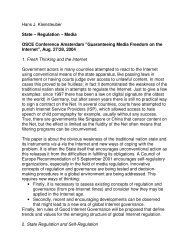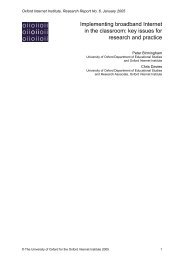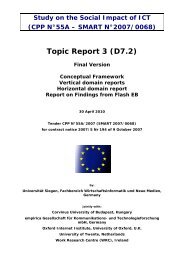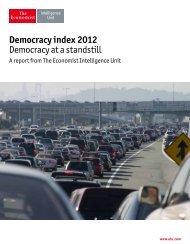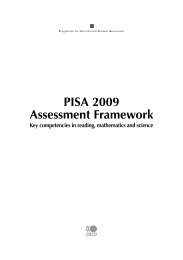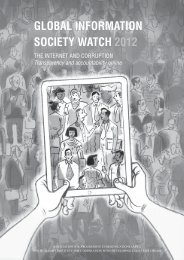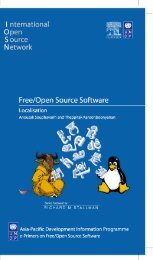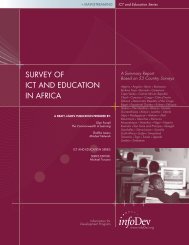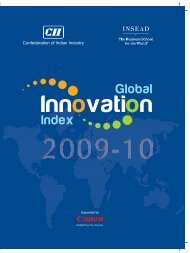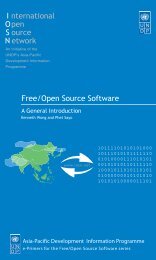Digital Activism Survey Report 2009
Digital Activism Survey Report 2009
Digital Activism Survey Report 2009
Create successful ePaper yourself
Turn your PDF publications into a flip-book with our unique Google optimized e-Paper software.
<strong>Digital</strong> <strong>Activism</strong> as an Activity of the Global Elite<br />
What conclusions can we draw from these figures on Internet access As mentioned at the end of the<br />
previous section, taken cumulatively this data draws a clear picture of the economic situation of the<br />
respondents. The survey did not request respondents to state their income because salary levels and<br />
purchasing power differ greatly from country to country. However, the data we do have draws a clear<br />
picture of a global prosperous class.<br />
Regardless of country or region, the respondents to this survey are very likely to have a high-speed home<br />
Internet connection. This statistic means little in the context of the United States where approximately<br />
63% of American homes have a broadband Internet connection. However, outside North America and<br />
Europe, home access is more unusual. For example, of the 13 Indian respondents to the survey, 77% have<br />
a home Internet connection and the remainder access the Internet from work, while India's overall<br />
Internet penetration is only 7%. Access rates for digital activists from countries in the Middle East, Sub-<br />
Saharan Africa, and Southeast Asia were likewise much higher than penetration rates for the majority of<br />
the population of those areas. This information leads us to believe that digital activists, particularly in<br />
developing countries, are much more likely than the population at large to pay a monthly subscription fee<br />
to have Internet at home, to be able to afford a high-speed connection, and to work in a white-collar job<br />
where Internet is also available. In short, digital activists are likely to be prosperous. Further research will<br />
be needed to verify this hypothesis outside the respondent sample.<br />
What does it mean if digital activists are part of the socio-economic elite It implies a corollary to the<br />
political empowerment thesis of the Internet. Yes, the Internet does empower people who previously did<br />
not have the means of mass broadcast, collaboration, and collective action. Yes, the Internet does to some<br />
extent decouple money and power by decoupling money and mass communication... but only up to a<br />
point. Merely having Internet access does not appear to be sufficient to turn a user into a digital activist.<br />
Rather, intensity of use is key and this intensity of use is only accessible to people with the ability to pay<br />
for it. The Internet may be democratizing, but its effects are felt most strongly in the global middle class.<br />
In addition to sharing common patterns of economic status and technology use, respondents to the<br />
survey were also likely to work toward similar goals. For example, 47% of respondents are working for<br />
rights-based issues. This global activist group may represent a new international class with international<br />
values which are not determined by national political systems but by universal values.<br />
14



